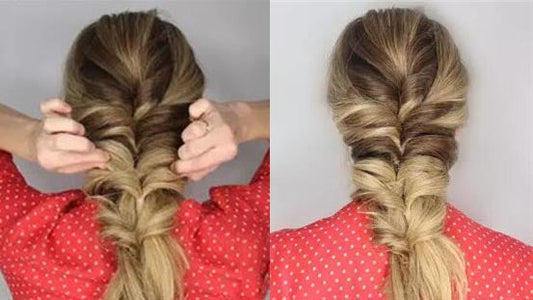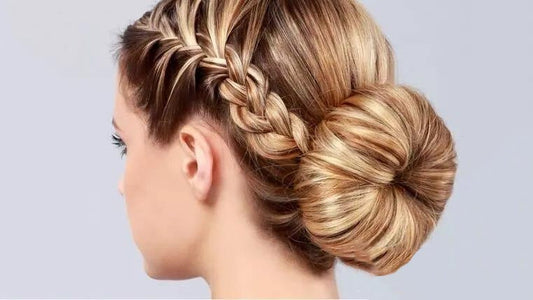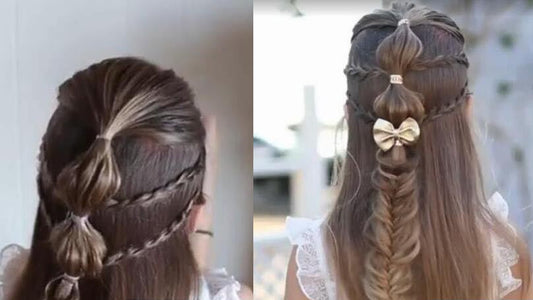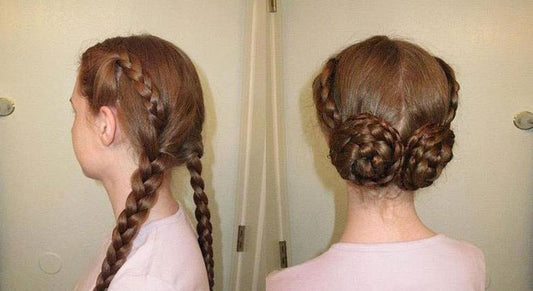The frequency of hair washing varies greatly depending on your scalp type, hair texture, and lifestyle. Over-washing can strip your hair of natural oils, leading to dryness, while under-washing can cause buildup and an oily appearance. Here’s how to strike the right balance:

- Oily Scalp: If your scalp produces excess oil, you may need to wash your hair daily. The natural oil (sebum) replenishes quickly, so daily shampooing won't dry out your hair.
- Post-Workout Hair: After a sweaty workout, it’s a good idea to wash your hair if your scalp feels greasy or sticky. Dry shampoo can offer temporary relief, but regular washing is better if you’re prone to oiliness.
- Straight or Oily Hair: Straight hair tends to get oily faster because oil travels easily from the scalp down the strands. Daily washing is often ideal.
- Dry or Wavy Hair: Dry or wavy hair may only need washing every two to three days, as it retains moisture better.
- Natural or Coarse Hair: Natural hair textures tend to be drier, so washing a few times a month may be sufficient. Longer hair also typically needs less frequent washing because it takes time for sebum to reach the ends.
- Age Considerations: As you age, your scalp produces less oil, so you may find you don’t need to wash your hair as often as you once did.
Signs You’re Over-Washing or Under-Washing
- Over-Washing: If your hair feels dry, coarse, or frizzy, scale back on how often you wash.
- Under-Washing: If your hair feels greasy or you notice buildup on your scalp, you may need to wash more frequently.
It’s a myth that skipping washes will reduce oil production. If you have an oily scalp, regular washing is still necessary to maintain balance.
Choosing the Right Products
Using the right products for your hair type is essential for effective washing. Here’s what to look for:
- Shampoo: Focus the shampoo on your scalp to cleanse away dirt, oil, and product buildup. Avoid overloading the ends, as this can cause dryness.
- Conditioner: Apply conditioner to the mid-lengths and ends, avoiding the scalp to prevent oily buildup. Leave it on for 2–3 minutes before rinsing thoroughly.
Specialized Products:
- Dry Hair: Use thicker, more moisturizing shampoos and conditioners.
- Oily Hair: Choose lightweight, balancing formulas.
- Color-Treated Hair: Opt for color-protecting products to minimize pigment loss.
- Damaged Hair: Look for products that restore and repair, such as those containing keratin or argan oil.
- Clarifying Shampoo: Use once a week to remove product buildup, especially if you have hard water.
- Dry Shampoo: Great for in-between washes to reduce oil and add volume.
Water Type and Temperature
- Hard Water: Hard water can leave a mineral residue on your hair, making it feel dry or dull. Use a clarifying shampoo or a hard water-specific formula to counteract these effects.
- Water Temperature: Always use lukewarm water to wash your hair. Hot water can dry out your hair, causing frizz and damage, while cold water may not effectively cleanse.
Techniques for Washing Hair
- Pre-Rinse: Wet your hair thoroughly with lukewarm water to prepare it for shampoo.
- Shampoo Application: Apply a small amount of shampoo to your scalp. Massage gently with your fingertips (not nails) to avoid irritation and breakage. Let the shampoo lather naturally without scrubbing.
- Conditioner Application: Focus on the mid-lengths and ends. Leave the conditioner on for a couple of minutes before rinsing.
- Final Rinse: Ensure all product is completely rinsed out of your hair to prevent buildup.
- Drying: Avoid rubbing your hair with a towel. Instead, gently blot it to remove excess water. Blow-dry only when your hair is damp, not soaking wet, to minimize heat damage.
What Not to Do
- Don’t scrub your scalp aggressively. This can lead to irritation and tangles.
- Don’t apply conditioner to your scalp. It can weigh down your roots and lead to buildup.
- Don’t skip conditioner. Even oily hair needs hydration on the ends.
- Avoid hot water and excessive heat styling. Both can dry and damage your hair.
Considerations for Color-Treated Hair
Color-treated hair needs extra care to maintain its vibrancy. Wash it less frequently to preserve the color, and always use shampoos and conditioners designed for dyed hair. Some products even contain pigments to boost your color between salon visits.
The Bottom Line
Washing your hair is more than just a routine — it’s an essential part of your self-care and styling regimen. The right frequency, techniques, and products can make all the difference in maintaining healthy, beautiful hair.
If you’re unsure about the best washing practices for your specific hair type, consult your stylist or dermatologist for personalized advice.









